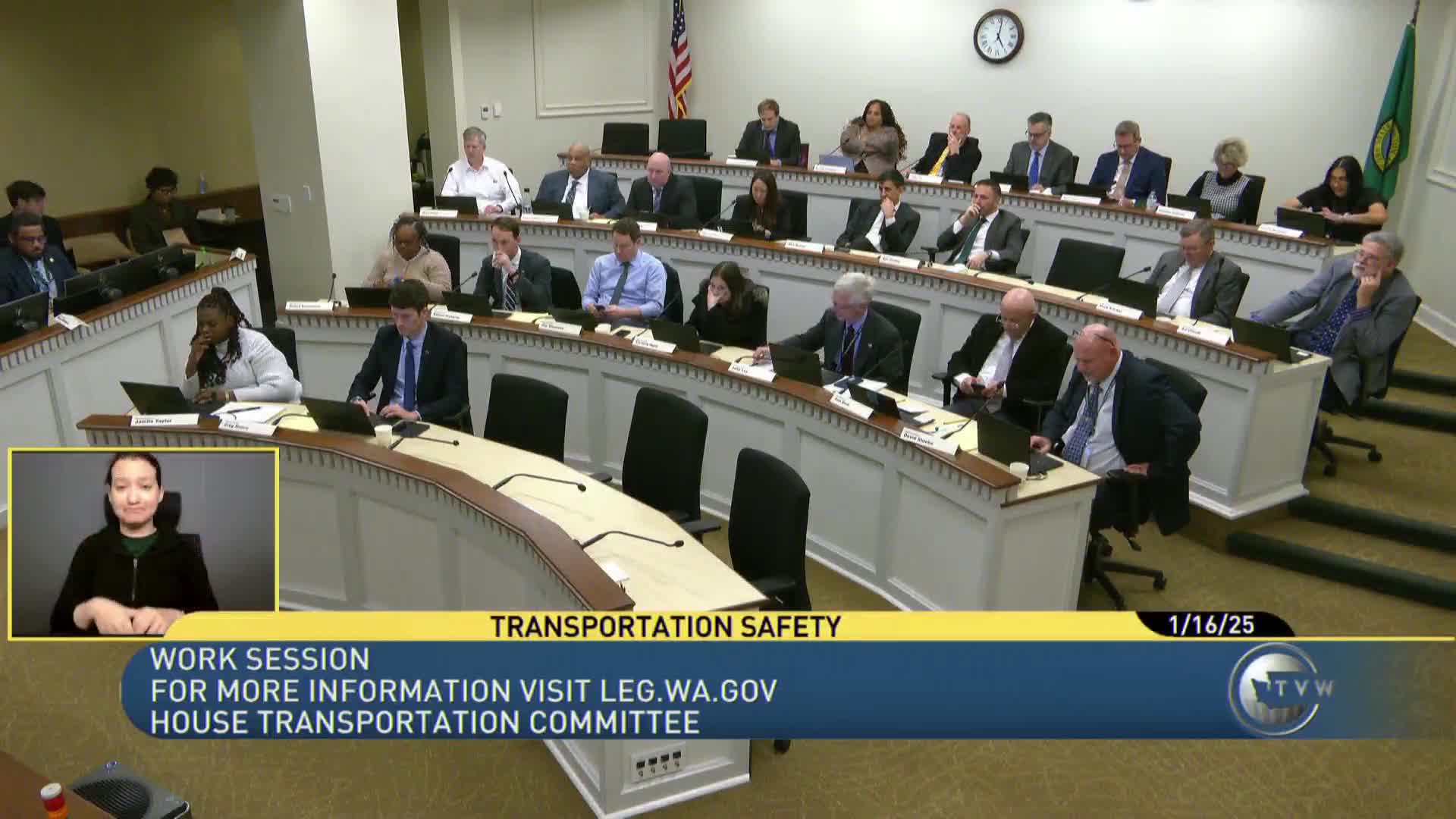Traffic Safety Commission reports record‑high recent fatalities, unveils Target Zero update and pilots to boost enforcement and interlock use
Get AI-powered insights, summaries, and transcripts
Subscribe
Summary
The Washington Traffic Safety Commission reported 809 traffic fatalities in 2023 and described a Target Zero safe‑system update focused on impairment, speeding and equity. The commission outlined use of 2024 proviso funds for tribal grants, high‑visibility enforcement shifts and an ignition interlock pilot in Yakima to close compliance gaps.
Shelley Baldwin, acting director of the Washington Traffic Safety Commission (WTSC), told the Transportation Committee the commission updated its statewide strategic highway safety plan, Target Zero, and presented data showing a troubling rise in fatalities and risk behaviors.
Baldwin and Mark McKechnie, the commission’s external relations director, said final 2023 data show 809 fatalities and that Washington exceeded the national fatality rate in 2023 for the first time since 1980. Baldwin said the increase from 2019 to 2023 and the 10‑year upward trend in several measures require a systemic response.
Impairment, speeding and young drivers
- Impairment: the presenters said impaired driving was involved in more than half of 2023 fatalities and that alcohol remains the most common substance (61% of impaired drivers had alcohol; about 25% of alcohol‑positive drivers also tested positive for delta‑9 THC). The commission reported an 80% increase in fatalities involving an impaired driver over 10 years.
- Speeding and norms: a statewide survey of more than 21,000 respondents found about 70% of drivers admitted driving 10 or more miles per hour above the limit at least once in the last 30 days; the presenters said this suggests speeding has become more normalized.
- Young drivers: fatalities in crashes that involved drivers ages 15–24 rose about 74% over the last decade; the presenters cautioned that “involved in” does not necessarily mean the young driver was at fault or the deceased party.
Target Zero update and priorities
The commission said it rewrote Target Zero using a safe‑system approach that places equity at the center and organizes work around safer people, vehicles, speeds, roads and post‑crash care. Baldwin said equity engagement included months of community input and that certain populations — notably American Indian/Alaska Native communities — have per‑population fatality rates roughly four times higher than other groups.
Proviso-funded actions and pilots
- Tribal grants: WTSC used 2024 supplemental proviso funds to grant equipment and planning support to tribal governments, including portable breath testing devices, LIDAR speed detection and other basic safety gear where local departments identified needs.
- High‑visibility enforcement (HVE): state funds filled gaps for federal HVE patrols during summer operations. WTSC reported 333 shifts supported by proviso funds that produced 184 DUI arrests and many speeding infractions; about 40% of recorded infractions were for speeding.
- Yakima ignition interlock pilot: WTSC said Washington’s ignition interlock law is strong, but only about 30% (by WTSC’s comparison of convictions to active interlocks) of people convicted of DUI appear to have an active interlock. WTSC is piloting a court‑level project in Yakima to identify barriers to installation and relicensing so more eligible people can receive interlock licenses. The pilot examines court orders, probation practices, affidavits of non‑driving and how to remedy administrative obstacles to relicensure.
Operational constraints and data gaps
Presenters cautioned that WTSC is a small agency (about 30 staff) and nearly 80% federally funded, so its ability to fill large operational holes is limited. Committee members raised related concerns: the State Patrol reported a backlog of toxicology kits (about 16,000 kits overall, with ~14,000 for DUI testing) and long processing delays; WTSC said it has provided federal grants for lab capacity but cannot fully solve the backlog itself.
What the commission recommended
Baldwin and McKechnie described Target Zero priorities, continued investment in enforcement and community engagement, and recommended translating pilot findings (especially the interlock pilot) into broader strategies to increase compliance and reduce fatal crashes. The commission said it will continue reporting results from proviso-funded pilots and tribal grants to the committee.
